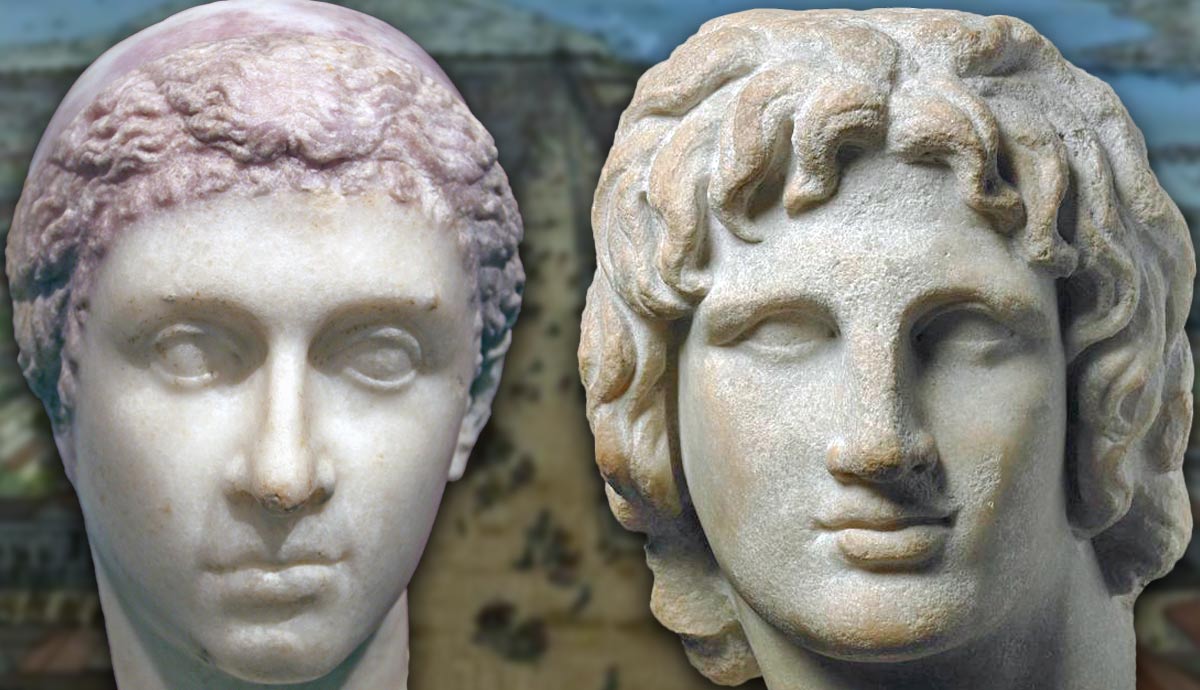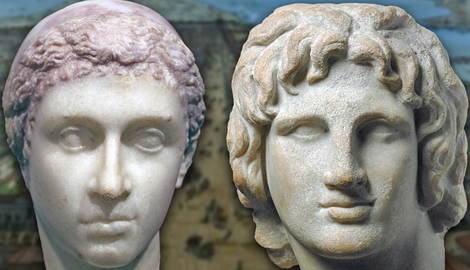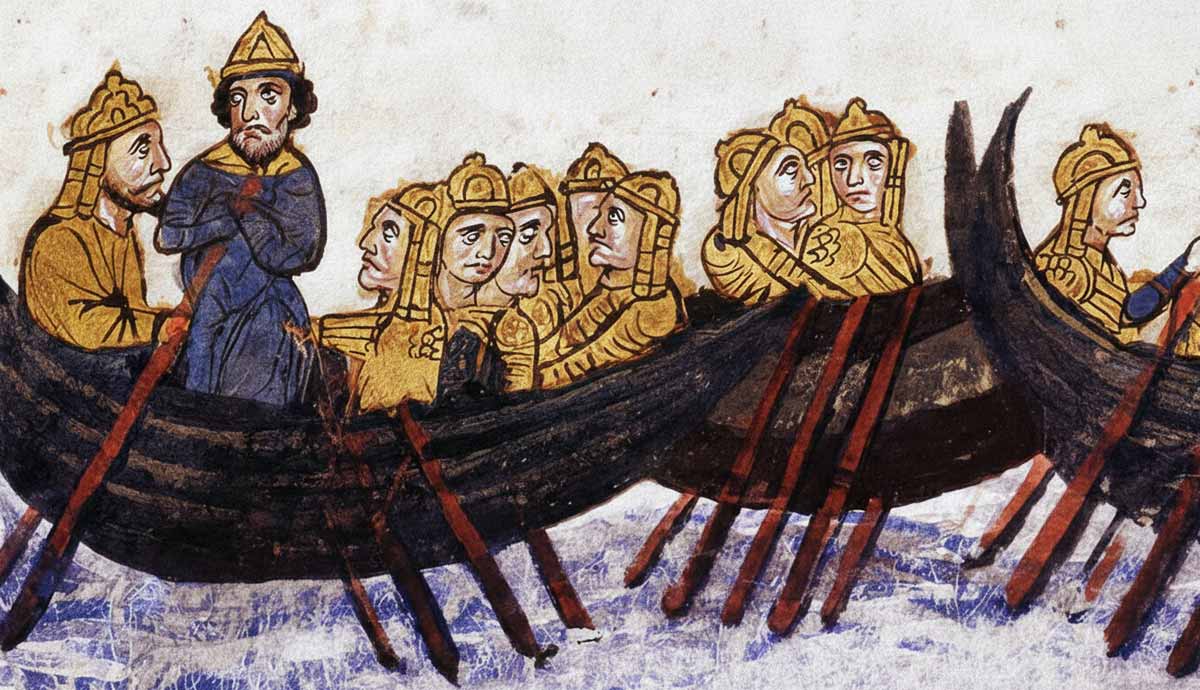
Cleopatra VII Philopator, the last ruler of the Ptolemaic Kingdom, was also Egypt’s last active Pharaoh. Cleopatra was not a direct descendant of Alexander the Great, but she was closely linked to the legendary conqueror through her ancestor Ptolemy I Soter, one of Alexander’s most trusted generals and companions, who established the Ptolemaic dynasty of Egyptian pharaohs. The Ptolemies ruled Egypt for three centuries, keeping their bloodline pure by marrying within the family. However, like all Hellenistic kingdoms, the Ptolemaic Egypt could not rival the might of Rome. Cleopatra’s reign was dominated by her strategic political alliances with two of Rome’s most influential leaders: Julius Caesar and Mark Antony. However, Cleopatra’s attempts to keep the throne failed, leading to her suicide, with Egypt becoming a province of the Roman Empire.
Cleopatra Was Not a Descendant of Alexander the Great

Cleopatra VII Philopator, the iconic Queen of Egypt, was not a direct descendant of Alexander the Great. She was, however, the descendant of Ptolemy I Soter, one of Alexander’s most trusted generals and companions. Following Alexander’s death in 323 BCE, his generals and successors, known as the Diadochi, carved up the vast empire between them. Ptolemy took over control of Egypt, establishing the Ptolemaic dynasty, which would rule over the region for three centuries.
According to some sources, Ptolemy was the son of Arsinoe and Phillip II, the father of Alexander the Great. However, this is likely a myth fabricated to legitimize Ptolemy’s claim to power and bolster the prestige of his family, linking it to the Argead dynasty of Macedonia.
Cleopatra Was a Member of the Ptolemaic Dynasty

Cleopatra was a direct descendant of Ptolemy I Soter, who, after Alexander’s death, became ruler of Egypt. He called himself both a Hellenistic king (basileius) and a Pharaoh. She was born in 69 BCE to Ptolemy XII Auletes. While her mother’s identity is uncertain, it is widely believed that she was Cleopatra Tryphaena, Ptolemy XII’s wife. Cleopatra’s Greek heritage was well established and well preserved. The Macedonian aristocracy avoided mixing with the locals. Ptolemaic kings and queens spent most of their time in the capital of Alexandria, named for its founder Alexander, occasionally visiting the hinterland to perform traditional ceremonies.
The rulers and the aristocracy, residing in new cities that displaced former political centers such as Thebes and Memphis, spoke Koine Greek, the lingua franca of the Hellenistic world. Egyptian, on the other hand, was spoken by the common people and priests. Cleopatra VII, however, could speak multiple languages, including Egyptian, which was unusual for a Ptolemaic ruler. In Ptolemaic Egypt, Egyptians with political ambition had to “Hellenize” themselves to find a place in the new royal court.
Life in Ptolemaic Egypt

In addition to retaining the Greek language and living in new Greek-style cities, the Ptolemies maintained several other Greek traditions, often at the expense of Egyptian customs. Greek education was imported, and Gymnasia appeared in urban areas. Greek artistic influence saw the rulers portrayed in a more classical style.
The Egyptian gods were syncretized with Greek gods, and animal deities, popular in the Egyptian culture, were anthropomorphized to suit Greek tastes. Ptolemy I promoted the worship of a new god, Serapis, who combined the characteristics of the Egyptian god of the underworld Osiris and the sacred Apis Bull with several Greek gods, including Zeus, Helios, and Dionysus, to create a new patron deity for his household that was acceptable to both Greeks and Egyptians.
But while this was designed to bring the two people’s together, a certain level of apartheid also functioned. Contracts made in Greek were settled according to Greek laws and in Greek courts, while contracts in Demotic were settled in Egyptian courts. While Cleopatra may have taken steps to bridge the cap, a two-tier society existed under the Ptolemies.
The Last Ruler of Ptolemaic Egypt

For centuries, Ptolemaic Egypt was a dominant Hellenistic kingdom and a major power in the Eastern Mediterranean. However, by the time Cleopatra’s father took the throne, Rome had emerged as a threat. The assassination of Pompey the Great, orchestrated by Cleopatra’s brother Ptolemy XIII, led to Rome’s direct involvement in Egypt’s affairs. Cleopatra swiftly jumped at the opportunity, establishing a personal and political relationship with Julius Caesar to eliminate her brother and secure the throne. Following Caesar’s assassination in 44 BCE, Cleopatra aligned herself with Mark Antony, another influential Roman.
Cleopatra’s alliance with Antony was both a romantic relationship and strategic partnership, as the two sought to establish a strong Roman-Hellenistic state. However, their plans were thwarted by defeat at the Battle of Actium in 31 BCE by Octavian’s forces. In the aftermath, Cleopatra committed suicide, and with her death, and the execution of her son by Caesar, Caesarion, the Ptolemaic Kingdom ceased to exist. Egypt became a province of the Roman Empire.
Alexander the Great and Cleopatra: Part of Alexander’s Legacy

Although Cleopatra was not a direct descendant of Alexander the Great, her life and reign were deeply influenced by Alexander’s lasting legacy. Alexander’s vast empire collapsed shortly after his death, in a series of bloody wars. Yet, the Hellenistic kings also engaged in diplomacy, trade, and the exchange of people, goods, and ideas, shaping and unifying a vast area from the Eastern Mediterranean to the Himalayas. Ptolemaic Egypt was a main center of Hellenistic culture, renowned for its cosmopolitan capital of Alexandria and the vibrant fusion of Greek and Egyptian traditions.
Cleopatra’s reign marked the culmination of the cultural and political legacy of Alexander the Great. When Cleopatra died, it signaled the end of the Hellenistic era. But not the end of Alexander’s legacy. The Roman Empire of Augustus could not resist Alexander’s spell and embraced his mantle.










